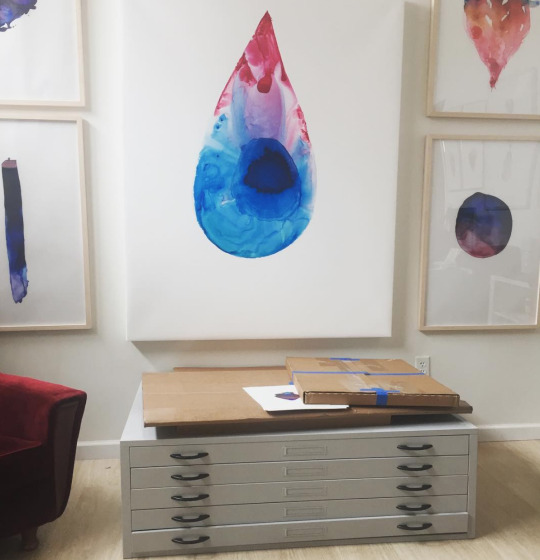#NYFAPartner Spotlight | Artwork Archive
5 Reasons Why Getting Organized Can Grow Your Arts Business
The New York Foundation for the Arts (NYFA) works to help artists build sustainable careers in the arts. One essential quality of a viable arts business? Organization. For that reason, we’re pleased to share a guest essay from Justin Anthony, who cofounded Artwork Archive in 2010 with John Feustel. Artwork Archive is an online resource that gives artists, collectors, and organizations the tools to organize their artwork and manage their inventory. Below, Anthony spells out why an organized arts business is a successful arts business, and explains how Artwork Archive can help.
Ever waste time trying to find information or images for a potential buyer? Have you double-booked or double-sold an artwork to two different galleries? Do you put off invoicing customers or sending out price lists to galleries, and hate sitting down with spreadsheets?
If you answered “yes” to any of the above, you are not alone. Most artists find it difficult to stay organized with so many other obligations. But with a little daily maintenance, having an organized arts business can save you stress and elevate your career.
The hardest part of getting organized is the very first step of creating a detailed studio inventory. Without it, the foundation of your arts business will be shaky. There are many reasons to keep accurate inventory records of your art studio, such as for insurance purposes, taxes, and to keep your business running smoothly.
Here are five ways you can grow your art business by getting organized with tools like Artwork Archive.
1. Stress less and don’t sweat the small stuff.
Who wants to waste time rifling through notebooks, desktop folders, receipts, and emails to find critical information? It’s chaotic, takes away from your time in the studio, and keeps clients and galleries waiting. Artwork Archive helps you avoid this scenario and easily track your inventory, contacts, galleries, sales, and more.
“I knew I needed to get organized.” said artist Amy Ritter. “I think that’s the most important thing about being an artist, is that it is a business. The more organized you are, the less stressed out you are.”
Having everything that’s essential to your business in one place allows you more creative energy and mental space to innovate and enjoy your work. Focus on your next brilliant idea, not where your artwork is, who purchased it, or where it’s going next.

2. Spend more time doing what you love.
As a professional artist, you have to be your own marketing team, shipping department, administrative assistant, CEO, financial advisor, and more. It’s a lot to juggle.
“I’m a painter, not an administrator,” painter Terrill Welch told us. “Anything that successfully keeps my brushes in my hands and still allows me to run my business is essential.”
With an inventory management solution like Artwork Archive, you can free up hundreds of hours and create invoices, inventory lists, and labels with a click of a button.
3. Present yourself and your artwork professionally.
Ever invoiced someone on a scrap piece of paper or Post-It note? Avoid slapdash invoices and showcase your business in the best light. Professionalism is key to any flourishing arts business, and professional reports are a fantastic way to display yours.
Whether it’s an invoice, price list, consignment sheet, or gallery labels, professional reports are an easy and fast way to impress buyers, collectors, and galleries alike. When they see you as the efficient professional you are, they are more likely to treat you and your art business the way you both deserve. This greatly affects future business relationships.
And why wait to get organized? Inventory management systems like Artwork Archive help you stay on top of deadlines, follow-up with clients, and easily generate polished PDF reports. “I wish I would have known how important it is to have accurate archives and records when I was first starting out,” said artist Caitlin G McCollom. “Years later when I was established, I had to do months of data entry to get caught up. Artwork Archive was a life-saver for this process.”

4. Make more informed decisions.
Getting insights into your art business with Artwork Archive’s reports, charts, and maps helps you stay on track, put your efforts into what’s working, and eliminate what isn’t. Whether it’s knowing the value of your inventory versus your sales or understanding which galleries are pulling their weight, these numbers help you make informed decisions about growing your business.
5. Make better connections and share your art with the world.
Having a quality online presence builds a successful and compelling brand. It shows you’re active in your art practice and makes it easier to connect with collectors.
Leverage Artwork Archive’s platform to gain exposure and get your work in front of potential buyers. The Public Profile, Presentation Mode, and other share options on Artwork Archive provide easy-to-use ways to showcase your art.
Beyond a clean and easy way to highlight your artwork and career accomplishments, the online portfolio is linked straight to your inventory, so it’s updated automatically. Showcase your work and connect with collectors—no web design experience necessary.
Ready to streamline your arts business?
At the end of the day, being organized helps you get paid on time, streamline your sharing process, gain access to bigger opportunities, and present yourself professionally. Try Artwork Archive for free here, and build a strong foundation for your arts business.

– Guest Essay by Justin Anthony, Artwork Archive Co-Founder
This post is part of a regular blog series highlighting sponsor organizations on NYFA Current. Follow NYFA on Twitter, Facebook, and Instagram to see the latest news about each #NYFAPartner. Sign up for NYFA’s bi-weekly newsletter, NYFA News, to receive announcements about future NYFA events and programs.
Images, from top: Courtesy of Artwork Archive; Courtesy Amy Ritter; Courtesy Caitlin G McCollom





